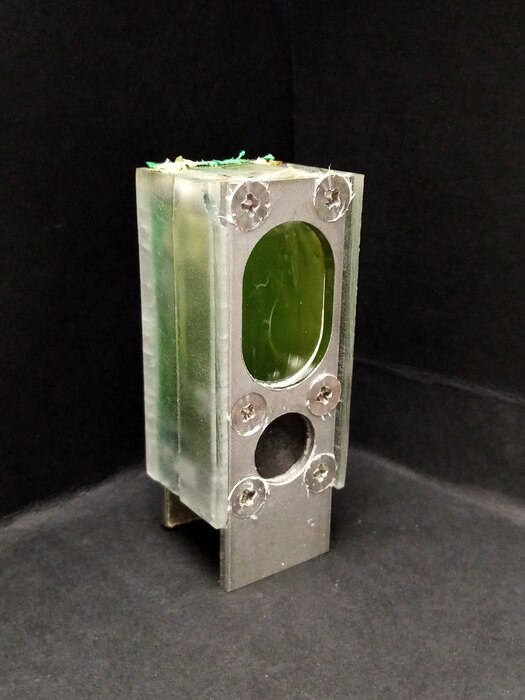
The prototype PC contains blue-green algae to power the ARM Cortex M0+ microprocessor. (Image Credit: Cambridge University/Paolo Bombelli)
Depletion of resources has me worried, but when I learn about developments like this, I'm put at ease.
Cambridge University scientists developed a prototype PC, powering it with blue-green algae for over six months. The system, made of affordable and recyclable materials, features non-toxic photosynthetic algae known as Synechocystis.
The team created an AA battery-sized metal enclosure to store the blue-green algae in the device. Rather than solar power or conventional batteries, the system relies on photosynthesized algae to generate a small amount of current that powers the ARM Cortex-M0+ chip.
A researcher involved in this project placed the system on a windowsill in their home for six months. More impressive, the computer ran for another six months even when the team finished running their tests. "We were impressed by how consistently the system worked over a long period of time – we thought it might stop after a few weeks, but it just kept going," Dr. Paolo Bombelli, author of the paper, said.
All-in-all, this algae-powered computer only consumes 0.3 microwatts per hour, a significantly lower amount compared to an average system. Although a computer's power consumption depends on varying factors, an average desktop computer typically consumes 60 to 250W.
While it's only a proof-of-concept, the team hopes this could be implemented for future IoT devices. Devices running on solar power rather than batteries could have a minimal effect on the environment. This project is part of a larger study focusing on "Biophotovoltaics," concentrating on generating clean energy through microorganisms.
"The growing Internet of Things needs an increasing amount of power, and we think this will have to come from systems that can generate energy, rather than simply store it like batteries," joint senior author of the paper, Professor Christoper Howe, said. "Our photosynthetic device doesn't run down the way a battery does because it's continually using light as the energy source."
The team must conduct further research to figure out how to up-scale this device. That could take a few years to achieve before it's even deployed in everyday applications. So it could be quite interesting to own a desktop PC that relies on algae for its power source.
Have a story tip? Message me at: http://twitter.com/Cabe_Atwell
